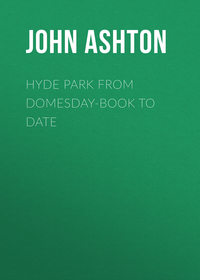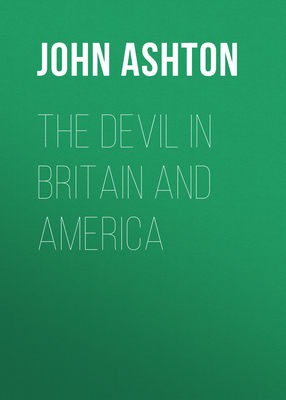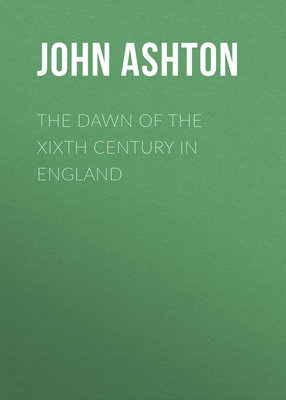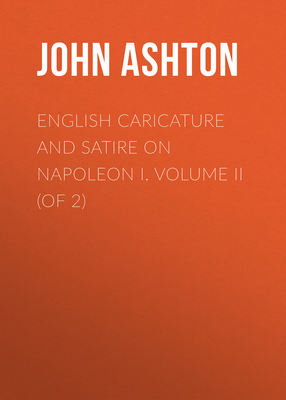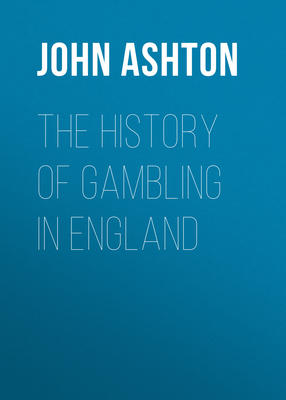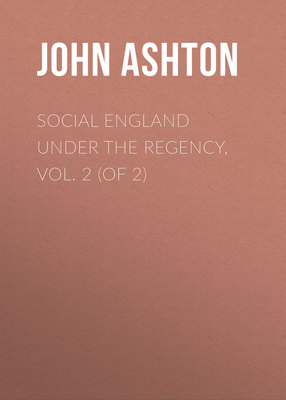Kitabı oku: «Hyde Park from Domesday-book to Date», sayfa 11
CHAPTER XVII
Sympathy with Italy, 1859 – Garibaldi riots, 1862 – Reform League Meeting, 23rd July, 1866 – Police proclamation against it – Attempt to hold it – Hyde Park railings destroyed.
There were no more meetings in the Park for a long time, but there was one on Sunday, 8th May, 1859, to propose an address to the Emperor Napoleon, sympathizing with the Emperor in the course he had taken with respect to the war in Italy.
This meeting passed off quietly, which was a great deal more than another did, which took place on Sunday, 28th September, 1862. This was, presumably, to express sympathy with General Garibaldi, and to protest against the French occupation of Rome. It was numerously attended, and especially by large numbers of Irish labourers, whose hatred of Garibaldi excited their fighting blood to such an extent that a serious riot ensued, which a violent downpour of rain helped to stop. Several arrests were made, and the prisoners duly fined.
But this was mild to what occurred the next Sunday, 5th October. The Irish had had time to brood over it, and although “The Working Men’s Garibaldian Fund” had not convened any meeting, it was generally understood that something would take place. By half-past four there must have been some 80 or 90,000 people present, and to hold them in order there were but about 400 police, who were ordered not to interrupt any speaker, nor, if possible to avoid it, to ascend the mound of earth, or rubbish, which had been chosen by the speakers as the platform from which to address the meeting. The following is The Times (Oct. 6) account of what occurred: —
“It appears that the possession of this mound of rubbish was the great object of contention between the rival supporters of Garibaldi and the Pope on Sunday week, and so it was yesterday. It appears to have been first occupied by a mixed body of people, but, owing to an aggressive movement of Irish labourers, it was soon held exclusively by the champions of the Papacy. The Garibaldians submitted reluctantly to this state of things for a short time, and, when two or three soldiers appeared, belonging to the Foot Guards, a cry was raised for ‘Garibaldi’, and some dozen or so men attempted to regain a footing upon the mound.
“This was the signal for a fearful conflict. It became apparent, in a moment, that almost every Irishman had a stick or bludgeon in his possession, and with these they struck about them right and left, crushing hats and breaking heads with relentless brutality. The Garibaldians struck back in return, some with sticks, and some without, and, for some ten minutes, the struggle was sufficiently fierce to awaken fears among the spectators that loss of life would ensue. One stalwart Irishman laid about him with a heavy-looking stick four feet long and two inches in diameter, and another with a roughly squared piece of wood, equally long and equally strong, and with sharp edges, until both were disarmed by the Garibaldians, without the intervention of the police.
“At the end of this struggle the Irish remained masters of the ‘Redan,’ as it was termed; but suddenly there came up about a dozen soldiers – Coldstreams and Grenadiers – who shouted for Garibaldi, and charged up the mound with desperate gallantry. Twice they charged in vain, but the third charge was successful. Up they went, amid loud cheers, and cries of ‘Go it, brave Guards,’ and followed by some 200 people. The front ranks of the Irish gave way; then there was another fierce struggle with sticks and fists on the summit of the mound, and then the Irish were kept off to a man, leaving the position in the hands of the Guards and the Garibaldians. Suddenly some sticks and stones were thrown at them from below, and the Guards plunged down to punish the aggressors. Away went the Irish, away went the Guards in pursuit, and, in a minute, a dense disorderly mass of 5000 or 6000 people was flying across the Park, spreading fear and confusion around them.
“Like a herd of infuriated oxen, they rushed onward, carrying all before them, till it seemed to occur to them that they were running for nothing, and then they returned to the mound. This occurred again and again, women being sometimes thrown down and trampled upon, and men compelled to turn and fly, till the wonder was that serious injuries were not inflicted upon many. Then, at short intervals, whenever the police fixed their eyes on some prominent aggressor, they made a plunge into the heaving mass, and resolutely brought out their man, generally, but not always, succeeded in conveying him away in safe custody. It is impossible to overrate the cool manner in which they set to work. Three or four officers would thrust themselves fearlessly into a mob of 200 or 300 infuriated men, collar one, cling to him, and hold him, despite the attempts made to favour his escape, never drawing a staff, nor striking a blow but holding their man by the bare assertion of the authority of the law, and this not for a brief period, but during the course of several hours.
“The Guards and the Garibaldians having firmly established their supremacy, quiet reigned, at one time for about a quarter of an hour; and, taking advantage of this interval of rest, a working man, came forward, who, in a brief speech, denounced the Emperor of the French as the would-be Dictator of Europe, and the enemy of Italy, the opponent of liberty everywhere, and, above all, the hater of liberty in England. In conclusion he called for three cheers for Garibaldi, which were lustily given, and, when he asked all those who sympathized with Garibaldi to hold up their hands, a forest of dirty hands were extended.
“Then another speaker followed, who, with great common sense, said, ‘Enough has been done. It had been made plain to the world that the feeling of the people of London was in favour of the great patriot, Garibaldi; and with that assurance, they might settle down without any more speeches.’ This speaker had hardly concluded when the tumult was renewed, the mound being lost and won several times, and the rushes through the Park followed close upon each other; while conflicts with sticks and stones were both frequent and severe. Knives were drawn several times, and one formidable weapon, apparently a shoemaker’s knife, with a wooden handle, and a blade nine inches long, was taken from a man, who said he found it lying on the grass after one of the tumultuous rushes. This was delivered up to Sergeant Savage, who forthwith shivered the blade to fragments.
“During one of the assaults upon the mound, a corporal in the Coldstreams had his bayonet snatched from its sheath, and later in the afternoon when it was recovered, the Irishman who had taken it was soundly thrashed, and threatened with a ducking in the Serpentine, towards which he was carried by several soldiers, who, however, yielded to the persuasion of others, and permitted him to go at large.
“At half-past five, two strong pickets, one of Grenadiers, and one of the Fusileers, marched into the Park, for the purpose of carrying off the men belonging to their respective battalions. They marched straight to the mound, and, just as they ascended it, a soldier received a terrific blow on the head from a thick club, wielded by an Irishman. The blood ran down the face of the soldier, who was led away in a fainting condition, his dastardly assailant escaping by plunging into a mass of his sympathizing countrymen. After this, the pickets cleared the mound, of which they held possession till a body of police approached, half an hour later, when the military power yielded to the civil. From that time the police held the mound, and, although there was a great deal of disorderly and tumultuous rushing to and fro, with an occasional scuffle, and wholesale destruction of hats, the fear of any very serious outbreak was passed. The people had begun to disperse at five o’clock, when a few drops of rain fell, and gradually thinned afterwards. But a fine moonlight night was the means of prolonging the demonstration; at seven o’clock, there were still some thousands of people remaining on the ground, and it was late before the Park was restored to its usual peaceful aspect.”
During the next week a strong body of men were engaged in levelling the objectionable mounds, the Guards were forbidden to enter the Park on the following Sunday, and a notice was issued by the Commissioner of Police: —
“Whereas numbers of persons have been in the habit of assembling and holding meetings on Sundays in Hyde Park, and the other parks in the metropolis, for the purpose of delivering and hearing speeches, and for the public discussion of popular and exciting topics; and, whereas such meetings are inconsistent with the purposes for which the parks are thrown open to, and used by the public; and the excitement occasioned by such discussions at such meetings has frequently led to tumults and disorder, so as to endanger the public peace; and on last Sunday and the Sunday before, large numbers assembled in Hyde Park, for the purposes aforesaid, and, when so assembled, conducted themselves in a disorderly and riotous manner, so as to endanger the public peace; and, by the use of sticks, and throwing stones and other missiles, committed many violent assaults upon persons quietly passing along the Park, and interrupted the thoroughfares; and, whereas it is necessary to prevent such illegal proceedings in future:
“Notice is hereby given, that no such meeting, or assemblage of persons, for any of the purposes aforesaid, will be allowed, hereafter, to take place in any of the parks in the metropolis; and all well-disposed persons are hereby cautioned and requested to abstain from joining, or attending any such meeting or assemblage.
“And notice is further given, that all necessary measures will be adopted to prevent any such meeting, or assemblage, and effectually to preserve the public peace, and to suppress any attempt at the disturbance thereof.
“Richard Mayne,“The Commissioner of Police of the Metropolis.“October 9.”
The appearance of about 800 policemen in the Park, and a pitiless rain in the afternoon of the 12th October, probably prevented a repetition of the scene of the 5th, as a sufficient number of suspicious characters were there, but did not stop long. There was an attempt, in Ireland, to get up a subscription for the injured Irish, but I cannot find that it met with any success.
For three or four years the Park was not troubled with noisy demagogues, until there arose an association called “The Reform League,” of whom a Mr. Edmond Beales, a barrister, was a prime mover. This association gave out publicly that they would hold a meeting in Hyde Park on Monday, July 23rd, 1866, and Sir Richard Mayne, in consequence, issued the following notice on July 17th: —
“Whereas information has been received, and it has been publicly announced in various printed notices, that it is the intention of certain persons to assemble in the open air at several places in various parts of the metropolis on the evening of Monday, July 23rd, and to walk from thence through the streets in procession, with banners, and preceded by bands of music, to Hyde Park, to hold a meeting there for the purposes of political demonstration and discussion:
“And, whereas such a meeting, being inconsistent with the purposes for which the Park is thrown open to, and used by the public, is illegal, and cannot be permitted, and such an assemblage there of large numbers of persons is calculated to lead to riotous and disorderly conduct, and to endanger the public peace:
“And, whereas it is necessary to prevent such proceedings, and to preserve the public peace: notice is hereby given that NO such Meeting, or Assemblage of persons in large numbers will be allowed to TAKE PLACE in Hyde Park, and all well-disposed persons are hereby cautioned and requested to abstain from joining, or attending any such meeting, or assemblage; and notice is further given, that all necessary measures will be adopted to prevent any such meeting, or assemblage, and effectually to preserve the public peace, and to suppress any attempt at the disturbance thereof.”
A copy of this notice was sent by the Commissioner to Mr. Beales, with a request that he would exert his influence to prevent any attempt to hold the meeting. This, in his reply to Sir Richard Mayne, Mr. Beales declined to do, unless he could be shown by what statute, or law, or principle of law, the Commissioner was acting in declaring the meeting illegal: and he went on to say, “The Park is either the property of the nation, as there are strong reasons for contending it is, under the transactions which have taken place between the Crown and the people, through Parliament, respecting it; or it is still Crown property, though kept up and maintained out of the public purse. If the former be the fact, where is your authority for excluding the public from their own property? If the latter be the case, then show me that you are acting under the express authority of the Crown, as claiming to be the exclusive owner of the Park.”
An attempt was made to carry out the meeting, and the following is a portion of The Times account of it. “Meanwhile vast crowds had collected in the neighbourhood of Hyde Park. A force of foot and mounted police, numbering 1600, or 1800, were assembled under the direction of Sir Richard Mayne and Captain Harris, and at 5 o’clock the gates were closed. Before that hour a considerable number of people had collected inside, in order to witness what was about to take place, and these were permitted to remain there. Outside, the throng was, as might be supposed, much greater. Masses of people had assembled at all the approaches. The Marble Arch was the centre of attraction, and for an hour or two previous to the proposed commencement of the demonstration, traffic was seriously impeded. The windows and balconies of the neighbouring houses were also crowded with spectators.
“Shortly after 7 o’clock Mr. Edmond Beales, Lieut. Col. Dickson, and other leading members of the Reform League, in a line of cabs which headed the Clerkenwell, Islington and other processions, advanced to the Arch; and, the sub-committee having succeeded in making a clear passage, Mr. Beales and his friends went up to the police, who were drawn up in line, staves in hand, some of them being mounted. The crowd immediately closed in, and endeavoured, by an ‘ugly rush,’ to effect admission. The police used their staves freely to defeat this attempt; and, it is stated that both Mr. Beales and Col. Dickson were struck in the scuffle. At any rate, after having been refused admission, and having raised the question in the form they desired, they went back to their vehicles, and, with some difficulty, managed to make their way through the crowd, in order to proceed to Trafalgar Square, there to hold the meeting, according to the programme which had been laid down.
“Printed bills were distributed among the various detachments as they came up from Clerkenwell, Southwark, Finsbury, etc., directing them not to attempt to force an entrance into the Park, but to proceed to Trafalgar Square. It is much easier, however, to collect throngs of people, than to keep them in leading-strings when collected; and a large portion of the ‘masses’ were not disposed to follow implicitly the instructions of their leaders. The gates, it is true, were strongly fortified, but to throw down the railings seemed a feasible undertaking, and this was promptly attempted. The police, indeed, hastened to every point that was attacked, and, for a short time, kept the multitude at bay; but their numbers were utterly insufficient to guard so long a line of frontier, and breach after breach was made, the stonework, together with the railings, yielding easily to the pressure of the crowd. The first opening was made in the Bayswater Road, where the police, rushing to the spot, prevented, for a time, any considerable influx of people; but they could not be ubiquitous, and along Park Lane especially a great extent of railing was speedily overturned, till in the end the crowd entered ad libitum.
“A good deal of scuffling attended these incursions. The police brought their truncheons into active use, and a number of the roughs were somewhat severely handled. One man, who was stated to be a mechanic, named Field, received serious injury on the head, and was carried off insensible to St. George’s Hospital. It is said that he had just thrown a brickbat at a policeman. A man named Tyler, living at New Road, Chelsea, also received blows on the head, and was taken to the hospital, as were, likewise, others, whose injuries were of a less serious character. The police, on the other hand, did not come off unscathed. One of them, named Penny, received a thrust in the side from an iron bar; another was knocked off his horse by sticks and stones, and several others sustained slight injuries. Stones were thrown at Sir Richard Mayne, who, as well as his men, was much hooted. Between forty and fifty persons were taken into custody in the vicinity of the Marble Arch, and about as many more at the other approaches. Many of the leaders of the crowd exerted themselves to prevent a breach of the peace, and Mr. Bradlaugh got considerably hustled for so doing, falling under the suspicion of being a Government spy.
“About eight o’clock, a company of the Grenadier Guards, and a troop of the Life Guards, entered the Park, but it was then too late to prevent the influx of people; for though the gates were still jealously guarded, breaches had been effected in every direction in the palings, and the military, who were loudly cheered by the crowd, confined themselves to manœuvres, the only effect of which was to oblige the mob occasionally to shift their position. The numbers in the park were, by this time, very large; and although, of course, there were a considerable number of ‘roughs,’ who look on the police as their natural enemies, many of the persons present appeared to be quiet and respectably-dressed people who had simply been attracted by curiosity, and showed no uproarious, nor even any political proclivities. Speeches were made at various spots, one of the orators being a Miss Harriet Laws, who delivered a very fervid address on the political and social rights of the people.”
The Times of next day (July 25th) says: —
“Yesterday morning Hyde Park presented, along its eastern extremity, a pitiable spectacle. Between the Marble Arch and Grosvenor Gate the railings were entirely demolished, and the flower-beds were ruined. Between the Grosvenor and Stanhope Gates, moreover, not a railing remained erect, those not actually levelled being forced considerably out of the perpendicular. This had been done out of mere wantoness, after ingress had been effected at other points, as was evident from the fact of the flowers and shrubs having escaped damage. On the north and south sides of the Park much damage had also been done, the railings having been overturned in numerous places. In many cases the masonry had given way, and was still attached to the ironwork, while in others the rails had been forced from their sockets; and one could not but reflect what appalling results might have ensued had the mob used them as weapons. The trees and shrubs were greatly injured, and, in fact, the appearance of the north-western portion of the Park was as if it had been overrun by an invading army. Waggons were engaged, yesterday, in removing the broken railings and shattered masonry, and a considerable sum will, certainly, be required to restore the Park to its original condition.”
CHAPTER XVIII
Reform League Meeting of 25th July, 1866 – Burning a tree – Stone-throwing – Temporizing policy of the Government – Special constables sworn in – Meeting abandoned – Return of police injured – Meeting of “Working Men’s Rights Association,” 1867 – Reform League Meeting of 6th May, 1867 – Police warning – Legal opinions – Meeting held – Meeting on 5th August, 1867.
But the London rough had tasted blood, and as a Reform Meeting was to be held in the Park on 25th, they gathered there in force. How the Park looked may be judged from the following, in The Times of July 26th: —
“The gathering in Hyde Park yesterday was, on the whole, probably of a more respectable and orderly character than on the previous day. It was generally believed that the rioting would diminish, if not entirely cease, and that the Government would adopt such precautions as would be likely to conduce to that result. The Park was, consequently, visited by large numbers of persons desirous of viewing the havoc which had been committed by the mob. During the morning, however, and the earlier portion of the afternoon, the roughs congregated largely, and spread themselves over the Park in search of amusement. For some time, this amusement appeared to be derivable only from an increase of the general destruction. The plantations especially have suffered severely from the hands of a ruthless mob, who appear, for the most part, to comprise the lowest scum of the London population. Shrubs and saplings have been broken near the ground, or forcibly torn out by the roots; and, in several instances, where the young trees were able to defy the strength of the attacks, the bark has been pealed off in every direction. This state of things is especially perceivable on the side of the Park facing the Bayswater Road; and from the Marble Arch for some little way down the Park Lane side, damage of a similar nature, but much less extensive, has been committed. Below Grosvenor Gate, however, the flower-beds remain untouched, the people, in entering the Park on Monday night, having seemingly avoided them. The railings lie in all directions, mingled with broken stones; for, as a rule, the wall itself seems to have given way, the railings, in many instances, though overthrown, still being connected for yards.
“In the Park itself, however, the damage, though not so great, is even more apparent. Many of the young trees have been broken off close to the ground, while branches have been wrenched off in all directions. Some little distance from the Marble Arch stands, or rather stood till yesterday morning, one of those venerable trunks, covered with foliage, which always invest the spots where they are to be found with an air of picturesqueness and wild beauty. But this tree has now shared in the general fate. After the mob had run riot over the plantations, the dryness and age of the trunk presented a temptation which it was evidently impossible for them to resist. They gathered together as much dry wood as they could find, and placed it at the foot of the tree, setting light to the pile. Dry as tinder, it was soon on fire, and throughout the day and night the smouldering tree afforded continual amusement. The police would not – at all events, did not – interfere, but two or three of the park-keepers were attracted to the spot by the crowd and the smoke. The roughs, however, were masters of the situation, and the keepers were consequently informed that if they remained long in the neighbourhood they would stand a good chance of being roasted. The fellows looked as if they would not require much provocation to induce them to fulfil their threat; and the keepers, fully believing discretion to be the better part of valour, at once beat a retreat.
“Even a burning tree, however rare as the sight is, will fail after a time to satisfy a London mob’s craving for mischief, and the fellows soon began to exert themselves in other ways. They attempted to fire some more trees, but without success, and then returned to the old trunk, where they occasionally diversified the proceedings by an exhilarating mélée with brickbats, stones, and pieces of burning wood. It was soon found that on being struck by a stick, the burning trunk would send forth showers of sparks, and the young trees in the neighbourhood were denuded of their branches, and in some instances broken off bodily for service in this way. But something still more exciting was needed, and it was soon determined in what quarter this might be obtained. The roughs then seized possession of the gates at the Marble Arch, and closed them, after which they commenced stoning the riders and the carriages passing along the drive in the Park, extending their favours in some instances to the more respectably dressed pedestrians and lookers on. These excesses rendered the interference of the police indispensable, and, accordingly, a strong reinforcement soon arrived. A fight, of course, ensued, in which stones formed the favourite weapons of the one side, and truncheons of the other. Several men were captured and confined in the Arch, until about five o’clock, when they were removed in cabs to the police-station.
“From five o’clock, the crowd increased considerably, but the fresh arrivals comprised a large proportion of respectable working men, who appeared, for the most part, to be actuated only by curiosity. Some short time afterwards, Mr. Beales and some of his friends came into the park. Mr. Beales was, of course, immediately surrounded by an admiring multitude, and for the rest of the evening was the centre of attraction. Wherever he went, he moved, so to speak, in crowds. A rumour had for some time prevailed to the effect that the police were to be withdrawn, and this rumour was now developed into a certainty. Mr. Beales informed the people that his visit to Mr. Walpole had resulted in that gentleman’s promising that the right of public meeting in the Park should be legally tested at as early a moment as possible. Mr. Walpole had agreed to permit the holding of a meeting in the Park on Monday next,51 and, in the meanwhile, it was expected that the Reformers should abstain from any proceedings, the Government having undertaken not to make any demonstration of police or military force. One of the leading reformers now arrived with a paste-pot and bills; and soon the various gates of the Park were covered with the following official announcement: —
“The Reform League and the Government
“The Government, by the Right Hon. Spencer Walpole, the Home Secretary, have this day agreed with the Council of the Reform League, to facilitate in every way their obtaining a speedy decision, either in Parliament or a court of law, as to the right of the people to hold public meetings in the parks, and it is earnestly requested that in the meantime, and until the question is decided, no further attempt be made to hold a meeting in Hyde Park, except, only, on next Monday afternoon, July 30th, at 6 o’clock, by arrangement with the Government. And it is further earnestly requested that all will abstain from disorderly acts, and do everything in their power to preserve the peace, and protect property, the Government undertaking, on their part, not to make any further demonstration of the military or police.
“Edmond Beales, President.”
This had the desired effect. Several speeches were made, the mob was congratulated on its “great and glorious victory,” and, in spite of the bitter feeling against the police, there was no further rioting; but the truth of the placard just given was denied by the Government, vide Times, July 26th, 1866.
“A placard having been extensively circulated on behalf of the Reform League to the effect that, in consequence of an agreement with the Government, every facility would be given to try the legal question of the right of the public to free admission to the parks for any purpose, no further attempt would be made to hold a meeting in Hyde Park, except only on next Monday afternoon; and such placard leading to the inference that the consent of the Government had been given to such meeting, we are authorized to state that no such consent has been given: and that on an application from the leaders of the League to be allowed to hold such meeting, by permission of the Crown, they were asked by the Secretary of State for the Home Department to prefer their request in writing, that they might receive a written reply.”
The Home Secretary in Parliament (26th July) said that, “In the meantime it is impossible for her Majesty’s Government to sanction that which they believe to be a violation of the law. It is added that if they desire to hold an open-air meeting, no objection will be raised to their meeting, as on former occasions, on Primrose Hill, but a meeting in any of the Royal Parks will not be sanctioned… If, after the warning which has been given, after the voluntary offer to permit a meeting upon Primrose Hill, they persist in what we believe to be a violation of the law, they must be held responsible for all the consequences which must follow from such a reckless course of procedure.”
Special constables were sworn in, the railings were removed and carted away, and a strong hoarding about ten or eleven feet high erected in their place. The projected meeting for 30th July was abandoned, and the Park was once more given up to the recreation and amusement of the people.
Many arrests had been made, especially for throwing stones at the police, and punishment was duly meted out. Many people were taken to the hospitals, and there treated for injuries inflicted on them by the mob and the police, the latter of whom, however, had suffered severely, vide the following return (Times, Aug. 2nd, 1866): —
“Return of the number of each rank of Police injured during the meetings in Hyde Park, on Monday, Tuesday and Wednesday, the 23rd, 24th and 25th July: —
“Rendered unfit for duty.– Superintendent, 1; inspectors, 2; police sergeants, 9; police constables, 33; total, 45.
“Slightly injured.– Superintendents, 10; inspectors, 18; police sergeants, 23; police constables, 170; total, 221.
“The Commissioner was struck several times by stones thrown at him; he received a severe contusion on the side of the head, and a cut on the temple, which blackened his eye. Each of the assistant Commissioners was struck several times by stones thrown at them.”
